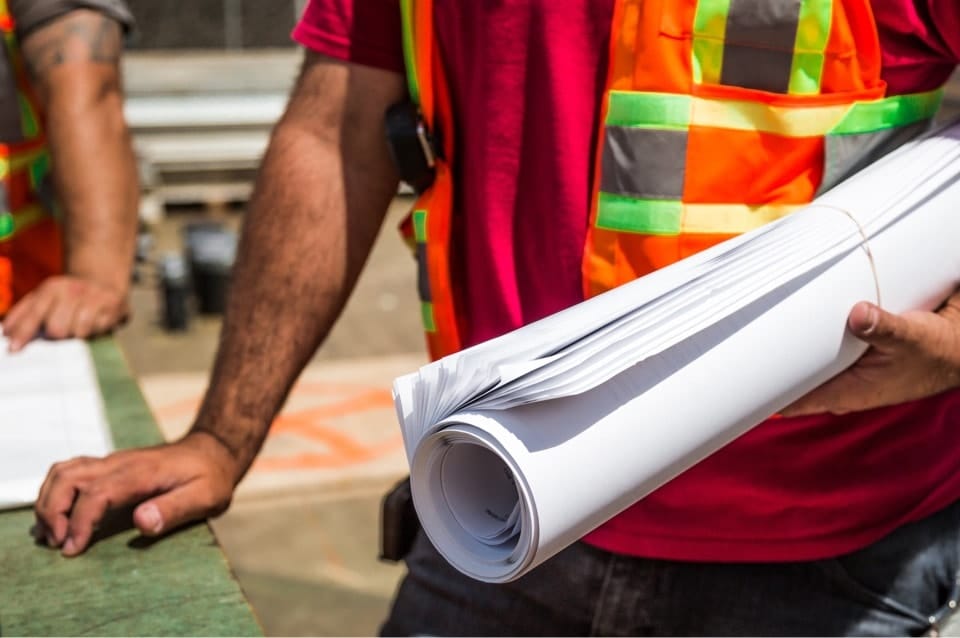Accounting for Construction Companies: How to Manage Your Finances

Are you completing one of the many building and construction certificates or building and construction courses online? If so, you’re probably preparing to start your own small business. A small construction company has 20 employees or less, and typically has a turnover of less than $10 million per year.
Starting your own business is a very exciting opportunity, but you need to take the right steps from the beginning to ensure your business is successful. You’ll have a lot of upfront and ongoing expenses to manage, not to mention you’ll have to deal with many unexpected delays and setbacks along the way.
In this blog, we’ll talk about accounting for a construction company. In it, we discuss some of the differences between construction accounting vs regular accounting, and give you some tips on how to succeed in business.
Plan for success
If you want to start your own small business after finishing your building and construction certificates (or building and construction courses online), you’re in a good position to create a plan. Without a plan, you won’t properly understand your budget, schedule, or scope of work. This could lead you to incur huge losses.
It goes without saying, but planning is very important before you start any construction projects. Planning helps you to devise a strategy, understand your expenses, and anticipate any potential delays or setbacks. Unexpected setbacks could include changes requested by the owner, or issues with construction regulations.
Create a business plan by visiting the Australian Government’s Starting a Business Guide. Here, you’ll find resources and tips to help you prepare for business, make key decisions, and plan for success. The guide also gives you advice on how to register and insure your business, and how to understand which laws apply to you.
Take taxes seriously
Taxes are another challenge for small businesses, including people who’ve just completed building and construction certificates. Tax is another thing that you need to anticipate and plan for before launching into construction work. Failing to do so could put your business under a lot of strain and cause you to fold quickly.
Paying taxes quarterly via pay as you go (PAYG) instalments will be essential. But you will also need to have a high level of accuracy when recording your expenses. Read the Australian Government’s Income tax for business guide, which will walk you through which taxes to register, how to keep good records, how to prepare for lodgements, and where to find tax help. Also, be aware that you could be eligible for small business tax concessions.
Master your cash flow
Cash flow is one of the hardest things for small business owners to manage. While you’re very skilled in building and construction, accounting may not be your strong suit. Plus, small business owners often don’t have the budget to hire accountants and bookkeepers.
These factors make cash flow difficult to manage, but cash flow is essential to the survival of your business. You need good cash flow to pay employees and maintain a healthy flow of projects. If you’re one of the students completing building and construction courses online and want to start your own business, spend a little extra time understanding cash flow.
Here are some strategies to help keep your cash flow in the positive, not the negative.
Avoid underbilling
Underbilling is very common in the construction industry. This is where you’re not getting paid as much as you should be for a project. It can happen if requisitions aren’t approved before you bill your clients. Be aware of the risk of underbilling and try to catch problems early.
Don’t delay change orders
Change orders are very common in the construction game, but they can make cash flow management difficult. For example, schedules may change due to unforeseen weather. Don’t leave change orders until project completion. Process them quickly to improve your cash flow.
Estimate accurately
Estimating accurately will help keep your cash flow healthy. Be as accurate as possible by listing all of your expenses and prices. This will help you bill the correct amount and schedule employee payments.
Secure your funds
As we mentioned earlier, you’re going to have a lot of upfront expenses; and once that’s over, a constant barrage of ongoing expenses. Secure your funds with the following tips.
Have a contingency fund
Things can always take a turn for the worse in business, but construction businesses are particularly vulnerable. We mentioned weather and client changes as examples that could delay your schedules and incur losses, but many other things could go wrong. This is why construction companies must budget for those rough spots. You may need to self-finance your contingency fund, but it will save your business during emergencies.
Request deposits
Small businesses are entitled to ask for deposits from their clients. You can take anywhere between 10-50% for a job. Incorporate deposits into your contracts. In addition, you could ask for progress payments throughout the course of big projects. This will help you manage your cash flow, cover expenses, and keep employees and contractors paid.
Avoid overspending
Knowing that you can claim your expenses at tax time doesn’t translate into a license to spend. After finishing your building and construction certificates or building and construction courses online, avoid the temptation to overspend on your new business. Carefully forecast for all of your expenses, several months in advance, to ensure you don’t break your budget.
Take a diploma
Whether you’re already doing one of our building and construction certificates or are just starting to look, further study can really help you develop business skills on top of your construction knowledge. A Diploma of Building and Construction will teach you all of the above and much more to get you ready for starting your small business.
Looking to take the next step in your career with one of our Building and Construction Courses? Contact our team at 1300 LEGEND (1300 534 363) or request a callback and we’ll get back to you with all the information you need!


